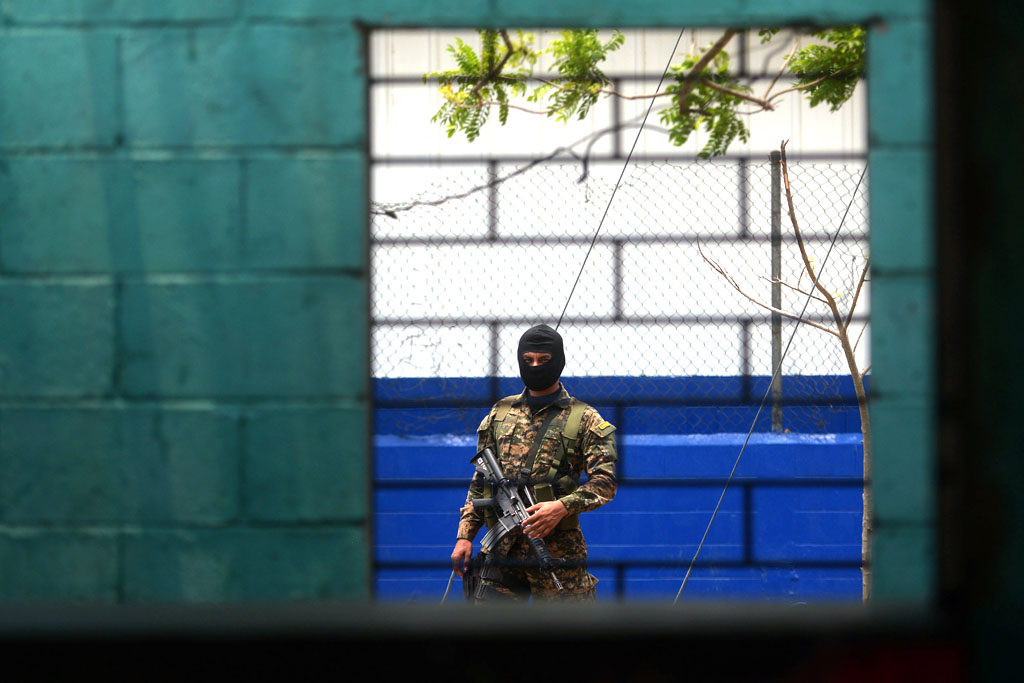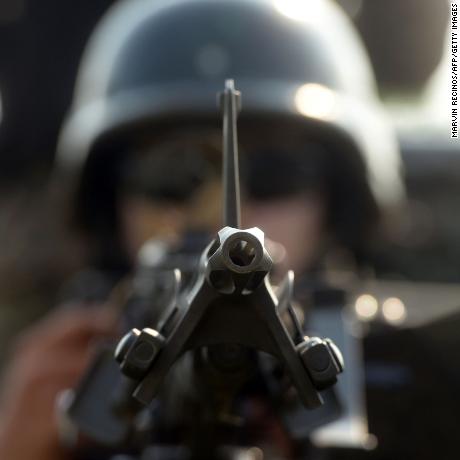US-funded police linked to illegal executions in El Salvador
The United States has quietly funded and equipped elite paramilitary police officers in El Salvador who are accused of illegally executing gang members, CNN has learned.
Successive US administrations have pumped tens of millions of dollars in to Salvadoran law enforcement and military to shore up the government’s “Mano Dura” or Firm Hand program, first launched in 2003 but redoubled in 2014 to tackle the country’s rampant gang problem.
Yet the country’s police will be broadly accused next month of “a pattern of behavior by security personnel amounting to extrajudicial executions” in a United Nations report, seen in advance by CNN, that will also call on Salvadoran security forces to break a “cycle of impunity” in which killings are rarely punished.
One police unit that killed 43 alleged gang members in the first six months of last year received significant US funding, CNN can reveal. Several of those deaths have been investigated as murders by Salvadoran police.
While the unit -- known as the Special Reaction Forces (FES) -- was disbanded earlier this year, many of its officers have joined a new elite force that currently receives US funding.
Source: National Civil Police of El Salvador, Christopher Aragón, Creative Commons
The exact recipients and nature of US funding for Salvadoran police are shrouded in secrecy. Publicly available documents rarely specify which units benefit from the $67.9 million in total aid given in 2016, and the $72.7 million last year, but they do say that “vetted units” get mentors from the FBI and DEA.
But two sources with knowledge of the US train-and-equip program, who did not want to be identified because of the sensitivity of the matter, told CNN that the FES was the recipient of US assistance. One source detailed the kind of equipment provided, which is shown on a US report to Congress, without naming its specific recipient.
The American assistance to the FES and its successor exposes the stark moral compromises undertaken in the fight against groups like MS-13, a Salvadoran criminal gang that started in Los Angeles in the 1980s but has since spread across the Americas and has around tens of thousands of core members in El Salvador. MS-13 recruits have been described by the US government as a “transnational threat” and as “animals” by US President Donald Trump.
As FES officers were shooting gangsters dead in the streets, the US government was sending money and equipment to the group while also deporting thousands of MS-13 recruits back to El Salvador, further fueling the growth of the group in a country where police may be getting away with murder, according the forthcoming UN report.

A member of the Special Reaction Forces (FES) stands guard in Soyapango, El Salvador in April 2016.
When confronted with the evidence obtained by CNN, a spokesperson for the US Embassy in El Salvador admitted for the first time that the US had supplied assistance to the FES unit, but said that “the US government takes allegations of extrajudicial killings extremely seriously, and has consistently expressed concerns regarding allegations of security force abuses, the need for accountability, and the critical role of rights-respecting security forces in a healthy democracy.”
The spokesperson added that all Salvadoran police units receiving US assistance were heavily vetted, and must show a “fundamental commitment to effective police mechanisms and respect for human rights” or the assistance stops. The US Embassy would not say if the FES received lethal aid.
The culture of lawlessness in El Salvador has also been exposed in a series of WhatsApp conversations in which officers discuss tactics for hiding extrajudicial executions and which gang members to target.
The messages, obtained by CNN, were sent in May 2017 and first leaked to local news outlet Factum by a police informant turned whistleblower who was included in the group chats. The Salvadoran police did not dispute the authenticity of the messages when asked about them by CNN.
In one exchange, an officer from an unknown police unit despairs at colleagues who beat a gang member before killing him and planting weapons at the scene to make the incident look like a shootout. The marks on the man’s body undermine the officers’ cover-up story, he says.
News Courtesy: www.cnn.com











